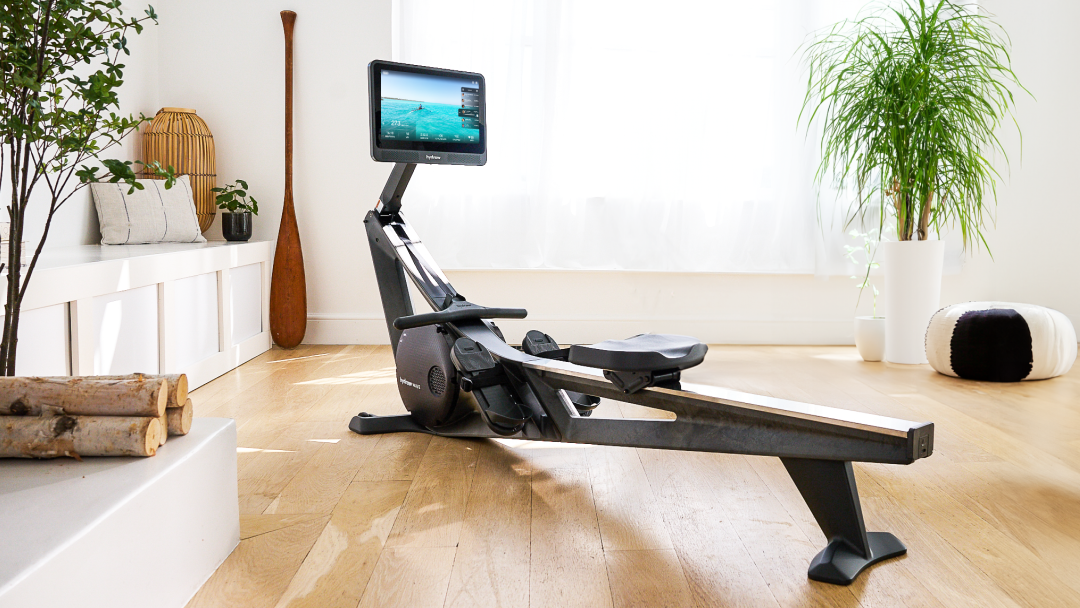Working Out While Pregnant: What You Need to Know to Stay Comfortable and Safe

In many ways, pregnancy is an utterly unique phase of a person’s life. Growing a totally new human inside you changes countless bodily processes and functions in ways that require adaptation and care. But at the same time, there are many healthy habits that you should carry over from your pre-pregnancy lifestyle. One of the most important? Exercise.
Indeed, working out while pregnant delivers countless benefits, both for the pregnant person and the baby. Every pregnancy is different, so it’s important to consult with your healthcare provider to determine the best routine for you and your baby.
Here, we’re sharing what you need to know about working out while pregnant, including:
Let’s dive in!
The benefits of exercising during pregnancy
There are many benefits of staying fit during pregnancy. Some of the biggest include:
Improved energy and endurance
Elated mood
Reduced pain
Enhanced circulation
Fewer pregnancy complications and faster recovery
Improved energy and endurance
Growing a baby is incredibly taxing on the body. In fact, researchers have found that the amount of energy expended on a daily basis throughout pregnancy is roughly twice as much as a non-pregnant person, or the same as an extreme athlete.
Maintaining an appropriate exercise regimen can ensure you have enough energy to complete all your daily tasks, not to mention the required endurance to make it through the most challenging high-intensity interval workout of your life: labor and delivery.
Elated mood
During pregnancy, many people no longer feel like themselves the same way they did before. After all, your body is changing on a daily basis, and that can be difficult to wrap your head around—so much so that one in five women in the U.S. is diagnosed with a mood or anxiety disorder in the period from the start of pregnancy to 12 months postpartum.
Setting aside time to exercise during pregnancy ensures that you have at least 30 minutes a day dedicated to you and no one else. During this time, you can connect with your body and remind yourself how strong and powerful it is, which can in turn do wonders for your mental health.
Reduced pain
There are many physical side effects to growing a tiny human inside you. A woman with a BMI range of 18.5 to 24.9 (normal) gains at least 25 to 35 pounds during pregnancy, weight that puts new strain on your bones and joints—especially the spine, hips, and pelvic floor. In addition to the extra weight, pregnancy shifts your center of gravity, pulling your spine out of alignment and warping your posture.
The result: Lower-back pain is incredibly common during pregnancy, with some estimates suggesting that up to 80% of pregnant people have it at some point.
Maintaining a targeted exercise program throughout pregnancy will help you keep the muscles of the core and those that support the back—including the transverse abdominals, obliques, erector spinae, and glutes—strong and engaged, which will reduce the pressure on your spine and pelvic floor to curb pain. Not to mention the fact that exercising will also help modulate your weight gain, keeping it at healthy levels that your body can handle (and shed faster).
Enhanced circulation
The volume of blood circulating through a person’s body increases by up to 50% during pregnancy—and that’s all extra blood the heart is pumping all throughout the pregnancy. Indeed, that’s the main reason why a pregnant person’s resting heart rate is roughly 30% higher than it was pre-pregnancy.
If you’re exercising regularly and trying to get a good balance of rest and activity with different types of exercise, you’ll ensure that your cardiovascular and circulatory systems remain strong enough to handle the increased blood volume and deliver all the oxygen-rich blood that your baby needs to your uterus.
Fewer pregnancy complications and faster recovery
Regular exercise during pregnancy benefits you and your fetus in these key ways:
Reduces back pain
Eases constipation
May decrease your risk of gestational diabetes, preeclampsia, and cesarean birth
Promotes healthy weight gain during pregnancy
Improves your overall fitness and strengthens your heart and blood vessels
Helps you to lose the baby weight after your baby is born
It has been shown that exercising during pregnancy can directly affect a woman’s labor and delivery in a positive way. Staying fit throughout pregnancy helps a woman feel more at ease about the process, heightens her overall well-being and her confidence, and reduces her fears about potential pain, immodesty, and fetal complications in the delivery room.
The unborn babies of women who exercise continually throughout their pregnancies seem to tolerate the stress of contractions more easily than the unborn babies of women who do not exercise, or stop exercising well before they reach term.
Additional studies have shown that women who exercise throughout pregnancy have a higher incidence of uncomplicated, spontaneous delivery, and their length of labor is shorter than those women who do not exercise throughout pregnancy. Yet another study found that dedicated exercisers had a lower cesarean section rate than women who exercised less often.
Related blog: Is Rowing Good for Postpartum?
The importance of listening to your body when working out pregnant
Every person and every pregnancy is different, and you and you alone know what works for your body. You’re going to feel different from day to day and month to month, so while heeding the advice of your healthcare provider is paramount, you’re the one who knows what feels right.
You might have a relatively mild first trimester and feel more capable of higher intensity workouts. You also might have a really challenging and exhausting first trimester which in that case slowing things down makes the most sense. There might be points when you feel amazing and points when your workouts feel more draining than energizing. It’s critical to listen to these signals and not push yourself beyond what you feel capable of on a given day.
Pregnancy is essentially a 40-week-long workout, and all the exercise and pregnancy-safe physical activity you’re doing on top of that is extra. Yes, it has benefits, but it is also possible to overdo it and open yourself up to injury or complications.
As a reminder:
Listen to your body (and your baby!)
Avoid a rapid increase in exercise frequency, go with what you’re comfortable with
Save sprints and all-out sustained efforts for when you’re fully recovered after giving birth
Avoid extra stressful climates and situations such as high altitudes and excessive heat
When to stop exercising when pregnant
As long as you’re listening to your body, you can safely exercise right up until the day your baby is born. But there are some warning signs to be aware of. According to The American College of Obstetricians and Gynecologists, if you experience any of the following during exercise, you should stop and call your healthcare provider:
Vaginal bleeding
Dizziness or faintness
Shortness of breath before starting a workout
Chest pain
Headache
Muscle weakness
Calf pain or swelling
Regular, painful contractions of the uterus
Fluid leaking or gushing from the vagina
There are also complications that can develop later in pregnancies that may come with the advice to stop your exercise program. In these cases, always listen to your healthcare provider and do what’s best for you and your baby.
The takeaway
As long as your healthcare provider gives you the green light, there are numerous benefits of exercise while pregnant, from a better mood and less pain to fewer complications and a speedier postpartum recovery. That said, it is critically important to listen to your body (and your doctor) to make sure you aren’t overdoing it and that you’re doing what’s best for you and your pregnancy.
If you are working out during your pregnancy, low-impact exercises like rowing should be at the top of your list. Hydrow offers a wide variety of rowing workouts, plus other low-impact classes like yoga and Pilates that will keep you strong and energized as your baby grows.
Learn more about the benefits of rowing and a Hydrow rowing machine today!

Explore Hydrow
Learn more about how you can transform your fitness routine with a rowing machine.




